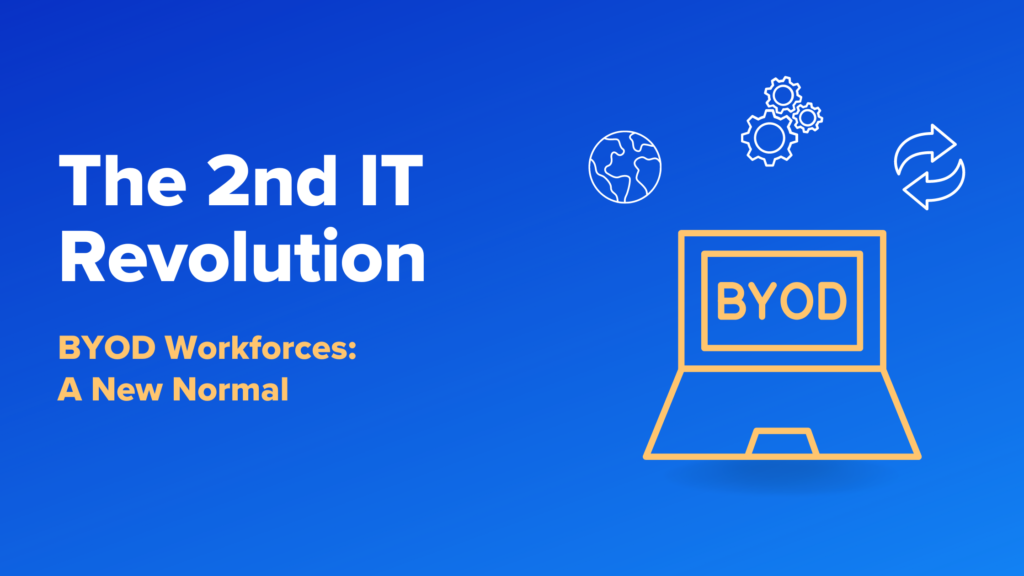Why California’s ABC Test Makes Issuing Laptops to Contractors a Growing Liability — And How Blue Border™ Solves It

Across California – and increasingly in other states with strict worker-classification rules – organizations are facing a new challenge: how do you secure work for contractors without exposing yourself to misclassification risk?
Under California’s ABC Test, issuing company-managed laptops to independent contractors can undermine their classification and trigger steep compliance and financial consequences. Yet many organizations still feel pressured to hand out hardware because they don’t trust unmanaged devices.
This puts IT, HR, and legal teams in a difficult position.
The good news: a modern, local-first security model can resolve this tension.
Venn’s Blue Border™ is purpose-built to help organizations protect sensitive apps and data on any personal laptop – without taking control of the device, without issuing hardware, and without relying on legacy VDI infrastructure that is slow and costly for contractor use cases.
California’s ABC Test: Why the Laptop Question Matters
California’s ABC Test – reinforced by AB 5, AB 2257, and supporting case law – is one of the strictest worker-classification standards in the country. Under this test, a worker is considered an employee unless the hiring entity meets all three prongs:
A. The worker is free from the company’s control and direction
B. The work is outside the usual course of the business
C. The worker is engaged in an independently established trade
Here’s why issuing a laptop is such a problem:
1. A company laptop signals control (Prong A)
When the organization provides, manages, or monitors the hardware, it’s evidence of employer-level control over how work is performed. Courts repeatedly cite “tools, equipment, and environment” as factors showing employee status.
2. It suggests the contractor is performing core business work (Prong B)
If the work is sensitive or integrated enough that the contractor must use your laptop, regulators often view it as part of the company’s standard operations – pushing them into employee territory.
3. It undermines independence (Prong C)
True independent contractors use their own tools and environments. Issuing hardware implies dependency on the hiring entity.
In short:
If you provide the laptop, you are likely providing evidence that the contractor is actually an employee.
Other States Are Following California’s Lead
While California is the most aggressive, it is not alone. Massachusetts, New Jersey, Connecticut, Washington, and Minnesota all apply similarly strict ABC-style tests in various contexts, particularly in wage and unemployment law.
This growing regulatory landscape makes it risky to rely on hardware-based security models for contractors across multiple states.
The Contractor Conundrum: You Need Data Security, But You Can’t Issue Hardware
This is the tension every modern organization feels:
- You need contractors to access sensitive systems.
- You cannot trust unmanaged personal devices.
- But you also can’t issue a locked-down corporate laptop without risking misclassification.
- And you can’t spend weeks setting up infrastructure for short-term contract work.
Virtual desktop (VDI) tools make this even worse.
Free eBook:
Secure Remote Access That Doesn’t Drive Users Crazy!
Secure your entire extended workforce without issuing devices or VDI. Keep your organization agile, compliant, and secure.

Why VDI Fails Contractor Use Cases in California
Organizations often default to VDI (Citrix, AVD, VMware Horizon) because it keeps data off the contractor’s physical device. But VDI is fundamentally mismatched for contractor-heavy environments:
1. Slow onboarding – days or weeks, not hours
Most contractors come on for finite, time-sensitive projects. Waiting on VDI provisioning kills productivity.
2. High complexity for IT
VDI requires infrastructure, licensing, image management, capacity planning, and user-level troubleshooting – all overkill for short engagements.
3. High cost per user
VDI is one of the most expensive ways to deliver remote work. For seasonal or contract workers, this makes no economic sense.
4. Poor experience on real-time apps
Voice and video (VoIP) apps perform poorly in VDI environments because everything must be streamed, not run locally.
5. VDI does not solve the ABC Test issue
Even if the contractor uses VDI, if they’re using your company-issued laptop to access it, you’re still back in misclassification territory.
California auditors don’t care what software you run – they care who controls the device.
Venn’s Blue Border™: The Secure, Compliant Way to Enable Contractors on Personal Devices
Venn’s Blue Border™ is designed specifically to solve the modern contractor dilemma. Instead of issuing hardware or deploying intrusive, device-level management (ie Microsoft Intune), Venn isolates and protects work apps and data (only), allowing organizations to meet both security and classification requirements.
How Blue Border™ aligns with the ABC Test
Contractors use their own devices (supports Prongs A & C)
Venn allows work to run securely on any personal PC or Mac – meaning the contractor keeps control of their device, apps, settings, and environment.
The company controls only the work – not the device
Blue Border™ isolates corporate apps and data within a policy-enforced secure enclave. This avoids the “full-device control” problem that triggers employee classification concerns.
No need to issue laptops
This alone removes one of the most common misclassification red flags.
Better than VDI for onboarding
Contractors can be provisioned in minutes, not days. For short-term engagements, this is critical.
Data stays protected in the secure enclave
Copy/paste, screenshots, file uploads to personal cloud storage, printing, USB, and data movement are controlled within Blue Border™.
Local performance for real-time apps
Because Blue Border™ runs locally, contractors get full performance for:
- Voice apps
- Video apps
- Screen sharing
- High-bandwidth apps
100% app performance – this is something VDI simply can’t deliver.
Why Companies in California Should Reevaluate Their Contractor Security Strategy
If you operate in California – or any state following the ABC-style model – your contractor security model must account for classification risk, not just data risk.
Today’s distributed, contractor-heavy workforce requires a local-first approach. Secure work on any device:
- Without taking over the device
- Without creating misclassification risk
- Without the cost and complexity of VDI
- Without the delays inherent in hardware shipping or virtual desktop provisioning
Conclusion
California’s ABC Test has changed the way organizations must think about contractor enablement. Handing out corporate laptops – once seen as a best practice for security – now creates legal exposure and operational friction.
At the same time, legacy VDI tools are too slow, too costly, and too cumbersome for the fast-moving contractor workforce that modern teams rely on.
Blue Border™ bridges the gap.
It provides zero-trust security for corporate apps and data on any personal device – aligning with contractor classification rules while delivering fast provisioning, excellent performance, and dramatically lower cost than VDI.
If your organization relies on contractors, offshore teams, or short-term specialists, Blue Border™ offers a simple, compliant, and scalable way to keep work secure in California and beyond.
Ready to see a demo? Pick your time HERE

Scott Lavery
SVP Marketing
More Blogs


